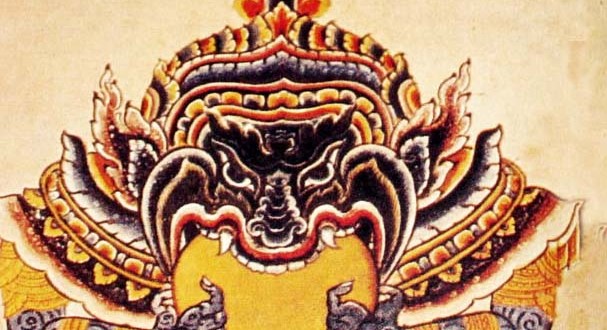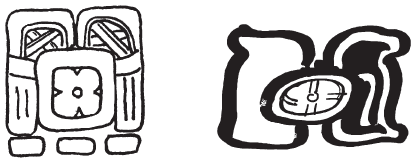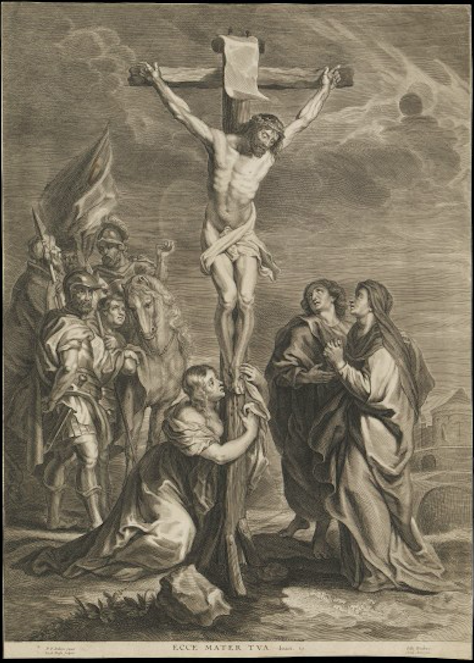 There’s been a lot in the media about eclipses this year. In fact, it’s fair to say that America has gotten a little eclipse crazy over the last couple months. (For those of you who just got back from a year stranded on a deserted island, we are expecting a total solar eclipse to cross the country next week. Oh, and Donald Trump is president now. Seriously.)
There’s been a lot in the media about eclipses this year. In fact, it’s fair to say that America has gotten a little eclipse crazy over the last couple months. (For those of you who just got back from a year stranded on a deserted island, we are expecting a total solar eclipse to cross the country next week. Oh, and Donald Trump is president now. Seriously.)
In fact, some are saying this might be the single largest human migration to see a natural event. You might be wondering, why are people going so nuts over a slightly darker minute and a half? The answer to this is simple: Because we always have.
Eclipses have always been a big deal for humans. Like, a really big deal. Sometimes they were a sign of end times, other times they were a blessing. And others, my personal favorites, were something in between.
Take the vikings. The ancient Norse people believed that eclipses were caused by a pair of mischievous wolves with a penchant for chasing celestial objects. When they caught them – and I assume swallowed them – the sun would disappear for a moment until all the vikings got together and screamed loud enough to chase the wolves away.
You have to love that about the vikings. The believed that a wolf big enough to swallow the sun was still scared shitless of a pack of angry vikings. And can you blame it? Vikings were scary. Interestingly, another Norse tradition holds that demons are fond of attacking a bride on her wedding day but are deathly afraid of spoons. For this reason, among others, I married a woman with tiny spoons on her head.
Closer to (my) home, the ancient mesoamericans had a series of fascinating thoughts about eclipses. The ancient Maya were actually able to track them and may have even ordered important events around them. At the very least they predicted the 1991 solar eclipse within a year of its arrival. This indicates two important points. One, as I have said before, the Maya did not believe in the end of the world. And two, the Maya were total badasses. I can barely predict when I will need to do laundry.
 The significance of an eclipse in the Maya world is tricky to decipher beyond the fact that they were careful in tracking them. Some tales seem to suggest that the sun and moon were a married couple and the very first humans. They had a rocky marriage though, what with the moon cheating on the sun with his brother, Venus, and then the sun pulling out one of her eyes so that she wouldn’t glow so brightly. As these stories go, an eclipse was just the the couple in another of their spats.
The significance of an eclipse in the Maya world is tricky to decipher beyond the fact that they were careful in tracking them. Some tales seem to suggest that the sun and moon were a married couple and the very first humans. They had a rocky marriage though, what with the moon cheating on the sun with his brother, Venus, and then the sun pulling out one of her eyes so that she wouldn’t glow so brightly. As these stories go, an eclipse was just the the couple in another of their spats.
The Mexica (or Aztecs, if you must) had a typically more dark take on it. They saw it as a sort of glimpse of the underworld, during which time the god Itzpapalotl – a fearsome woman dressed in court finery but with the hands of a jaguar and the claws of an eagle – had permission to snack on humans.
 But my favorite take on eclipses comes from the ancient Hindu. It seems the god Rahu earned his supernatural powers from drinking a special elixir in secret. But the sun, who everyone knows is a total suck-up – narced to Shiva, who quickly cut Rahu’s head off. Because he wasn’t done drinking, only his head became immortal – kind of the polar opposite of what happened to Ganesh when he lost his head.
But my favorite take on eclipses comes from the ancient Hindu. It seems the god Rahu earned his supernatural powers from drinking a special elixir in secret. But the sun, who everyone knows is a total suck-up – narced to Shiva, who quickly cut Rahu’s head off. Because he wasn’t done drinking, only his head became immortal – kind of the polar opposite of what happened to Ganesh when he lost his head.
But here’s the best part, Rahu’s immortal decapitated head now chases after the sun to punish it by swallowing it up. (I mean, it’s kind of his only move at this point.) But when he catches the sun and eats it, it just comes popping back out the neck hole. Which I can only imagine has all the other gods in absolute stitches.
And modern religion is by no means exempt to looking for meaning in a random crossing-of-one-big-round-thing-in-the-way-of-another-round-thing. Christian websites have been abuzz with the significance of the event. Some on the wackier side see the crossing-of-big-things as a sign or message from God, generally not a good one.
 This makes sense because whenever God blots out the sun in the Bible, he’s usually pissed off, such as when the Egyptians refuse to release their Jewish slaves or Jesus is nailed to a cross in Calvary. (Though, to be fair, both of these events went on a little too long to be true eclipses.)
This makes sense because whenever God blots out the sun in the Bible, he’s usually pissed off, such as when the Egyptians refuse to release their Jewish slaves or Jesus is nailed to a cross in Calvary. (Though, to be fair, both of these events went on a little too long to be true eclipses.)
Others see it simply as an opportunity to meditate on the importance of shadows and what they show us. And in the Bible, it’s occasionally seen as a good thing, as when God decides to heal King Hezekiah while causing an eclipse.
All of this is to say that people go eclipse crazy because eclipses are cool and have always carried a special meaning for us little mortals. I personally became obsessed with seeing the eclipse after hearing David Baron’s captivating description of seeing his first eclipse. So I decided then and there to figure out a way to see it.
I don’t see any more significance in an eclipse than I do in a comet hitting the moon or a supernova. But you can bet your ass that I would hop a plane and sleep on someone’s floor to get a front row seat to either of those things.
“Jesus is nailed to a cross in Calgary”
“Calvary,” maybe? Or have those nice-mannered Canadians been up to a heretofore unpublicized crucifixion?